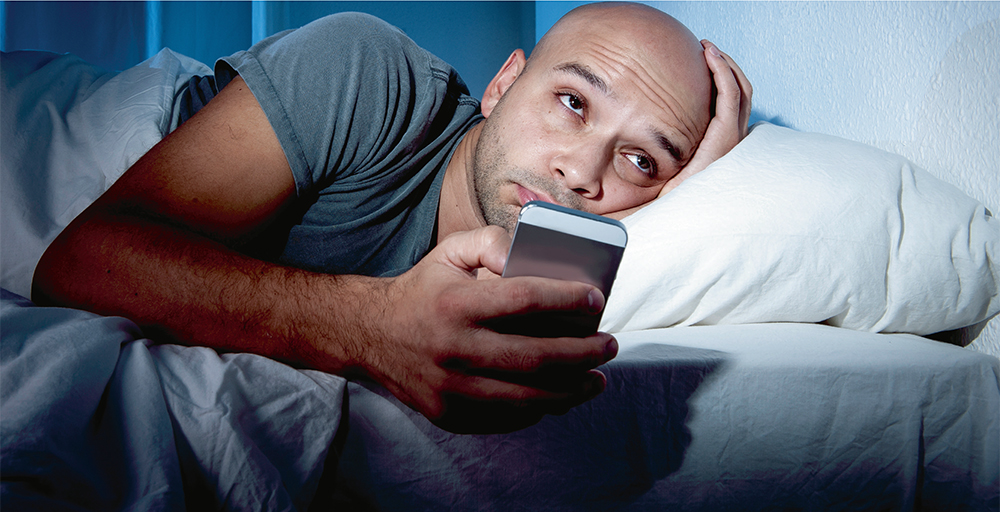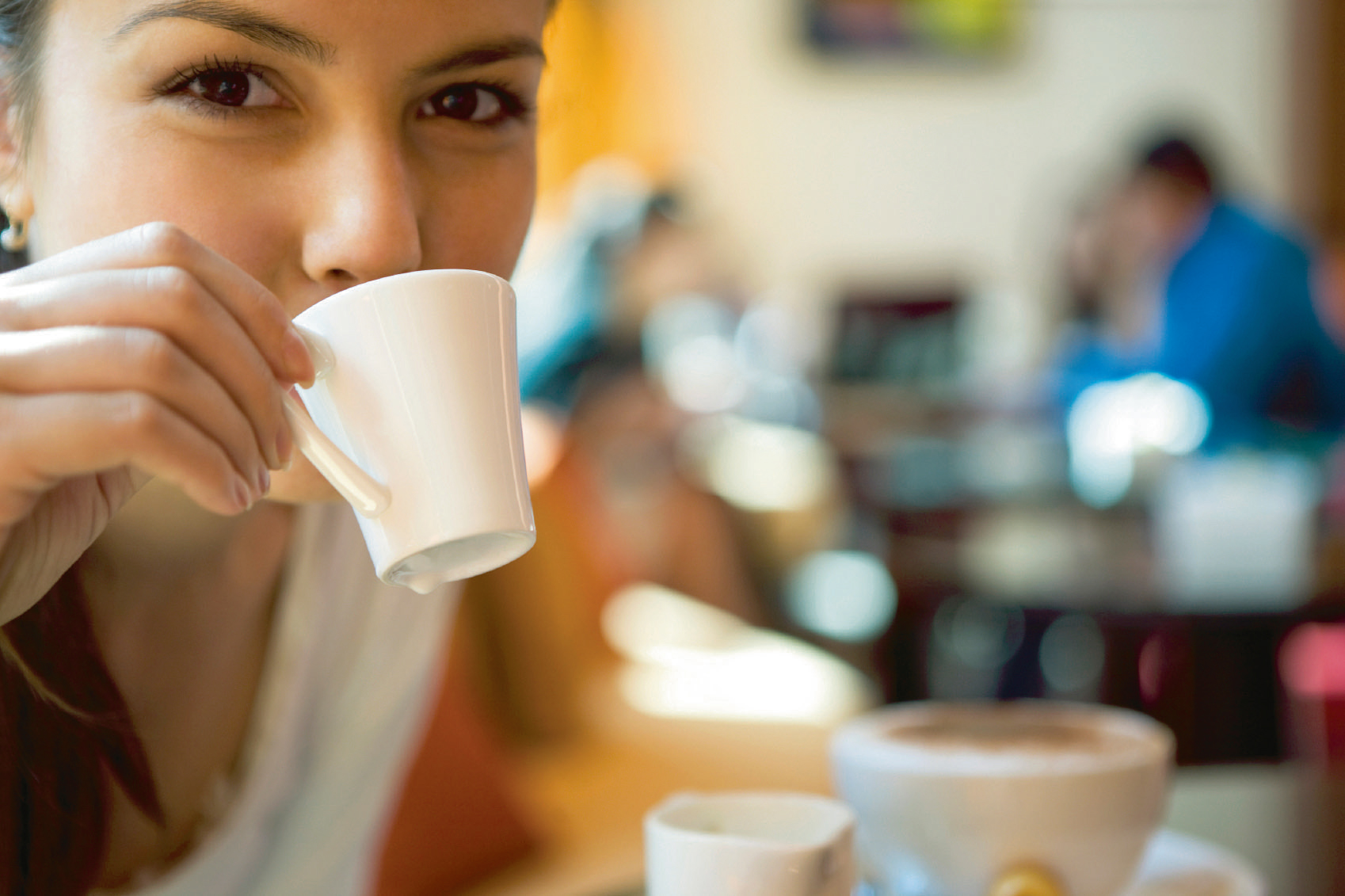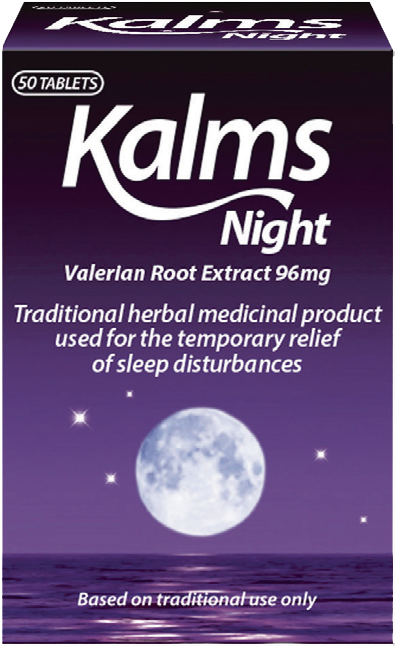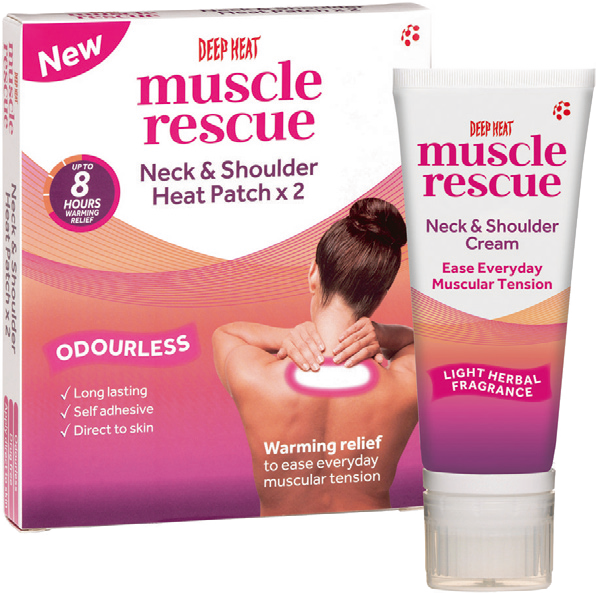The 24/7 generation
In In-depth
Follow this topic
Bookmark
Record learning outcomes
Sleep problems can occur for a whole host of reasons and can have a serious effect on a person's quality of life. Sleep experts discuss what can be done to help customers get some proper shut-eye

Social media rules many people's lives. It's with us 24/7, and many experts believe that our addiction to technology is wreaking havoc on our sleep patterns and psychological wellbeing. In September 2015, a survey by The Sleep Council found that many people use some form of technology in the hour before bedtime. And one in three of those questioned admitted to making phone calls and sending or receiving texts and emails in bed. Research conducted by Glasgow University, also in September 2015, revealed that teenagers who engage with social media during the night could be damaging their sleep and increasing their risk of depression and anxiety.
Research suggests that staring at an illuminated screen at bedtime could send the wrong signals to the brain, confusing the body clock and making people feel more alert. €A complex pathway of hormones prepares the body for sleep,€ says clinical hypnotherapist Pat Duckworth. €This is triggered by a drop in ambient light and temperature. Staring at a computer screen, television or even a Kindle increases light so that no sleep hormones are released. Playing computer games in the evening stimulates the brain to release cortisol and adrenaline instead, even though the body needs to relax.€
According to Dr Christopher-James Harvey, education and outreach officer at the Sleep and Circadian Neurosciences Institute in Oxford, the media may exaggerate technology's impact on adult sleep patterns. But, he says, technology does appear to have a more significant effect on teenagers. €The effects of light from these devices are more noticeable in adolescents, who are going through various changes, especially in their brain anatomy,€ says Dr Harvey. €Circadian neuroscience changes mean that adolescents from 10 to 21 years are programmed to go to sleep later and wake up later.€
Research presented at the Newcastle British Sleep Society Conference in October 2015 revealed that more than a quarter of the British population suffer from dangerously low levels of sleep, with many sleeping as little as five hours per night. The study at the University of Leeds, in conjunction with Silentnight, found that some people are losing more than 15 days' worth of sleep a year. Some 30 per cent of respondents reported being dissatisfied with their sleep and 18 per cent said that poor sleep had a negative effect on their daily functioning.
Sleep problems affect one in three of the population at any one time and one in 10 people on a chronic basis. One bad night's sleep can affect mood, concentration and alertness, while long-term sleep deprivation has far more serious consequences.
€Less than five hours each night is associated with serious negative health outcomes including cardiovascular problems, obesity and diabetes,€ says University of Leeds psychologist Dr Anna Weighall. €The increasing demands of modern life, social media and connected technologies may affect the quality and quantity of our sleep and pose a serious and detrimental threat to health.€
Natural rhythms
Our sleep-wake cycle is controlled by our body clock, which tells us when to get up and when to go to bed. The body clock is actually a cluster of cells, known as the suprachiasmatic nucleus, found in the brain's hypothalamus. It synchronises cells in all of our major organs and tissues, turning genes on and off at different times of the day.
Our body clock works on a cycle of just over 24 hours. It regulates our blood pressure, brain activity, metabolism, body temperature and balance of body fluids. It controls everything from the best time to eat, the easiest time to exercise and even the time of day people are most likely to have a heart attack (in the morning).
Most people override the natural rhythms of their body clock, staying awake when their body wants to sleep and waking up with an alarm early in the morning. By doing so, they don't realise they're becoming sleep deprived. €An early start has the biggest impact on people's sleep patterns and can affect people's performance during the day,€ says Dr Paul Kelley, honorary clinical research associate at the University of Oxford.
€Most people don't naturally wake up at the time when they have to get up to go to work. A rough test to check for sleep deprivation is to compare what time people wake up on a work day (with an alarm) with their natural waking time on a rest day (with no alarm). If people need an alarm to wake them up on a work morning, they are probably out of sync with their body clock.€
Increasingly, research is suggesting that we should start work and school later in the day to fit in with our natural circadian rhythms. Dr Kelley and his colleagues in Oxford are leading a project called Teensleep, a large randomised control trial involving 100 schools around the UK, which is due to begin in 2016. He believes that school days should start at 10am, instead of 9am, to better match the circadian rhythms of adolescents and young adults.
This could have huge benefits for teenagers, enabling them to learn at a time when they are more likely to be engaged. €Teenagers are losing up to two hours' sleep a day,€ says Dr Kelley. €They are often sleep deprived, which affects their physical and mental performance, as well as overall health. That's why we are looking into changing the start time of school and assessing its impact on performance, mood and illness. This could have very important issues for patients and industry.€
Sleep hygiene
A poor sleep environment, medication or lifestyle factors, such as jet lag, can trigger occasional bouts of insomnia. But according to research by The Sleep Council, almost half of Britons have never taken steps to help them sleep, even though 32 per cent admit that that they sleep poorly. If customers visit a pharmacy for advice on sleep problems such as insomnia, staff should suggest some simple 'sleep hygiene' tips.
€Sleep hygiene is a list of health education do's and don'ts,€ says Professor Kevin Morgan, director of the Clinical Sleep Research Unit at Loughborough University. €This is the first-line approach for many people, and pharmacies can pass on a sleep hygiene sheet to customers who ask for advice. Sleep hygiene is unlikely to be a cure for insomnia, but may stop the problem getting worse.€
If customers are struggling to get to sleep or stay asleep, they may need to assess their sleep environment, checking their pillow, mattress and bedding are comfortable and provide sufficient support. Memory foam mattresses can make people very hot, particularly women, and especially during the menopause. Stopping all technology in the last hour before bedtime may also help.
€If customers can't sleep, they should read, tidy up the kitchen or get ready for the next day, rather than use technology,€ says Dr Kelley. €Other useful tips include having a hot bath and making sure the bedroom is cold at night.€
If someone is struggling with sleeplessness, it's important that they look at their diet too, especially their caffeine intake. In September 2015, researchers from the MRC Laboratory of Molecular Biology and the University of Colorado found that caffeine directly affects the body clock by delaying a rise in the level of the hormone melatonin, the main hormone that makes people feel sleepy. This may explain why some people find it harder to sleep if they've had a coffee in the evening.
Being overweight can also cause sleep problems, although research shows that people who don't sleep well find it more difficult to control their weight. It's not just what people are eating or drinking, but also at what time of the day.
Pharmacies sell a range of over-the-counter sleep aids, including antihistamines and herbal products, which some customers may find helpful. Customers can also try natural sleep solutions, such as lavender pillows. €Over-the-counter products can be used for a short period to get them back into a regular routine, but they don't lead to good quality sleep,€ says Pat Duckworth. €Herbal remedies can be useful, but pharmacy staff need to check that these don't interact with any medication customers are taking.€

Coffee directly affects a person's body clock
Long-term management
Persistent insomnia can have a significant impact on a person's quality of life. If someone is struggling to cope, it's important that they see a GP to discuss possible causes and the different options available to them. Stress is a common cause of sleep problems and often needs to be tackled before someone can get into a regular sleep pattern.
€Many people lie in bed with thoughts that stop them sleeping,€ says Pat. €If people find themselves agitated about things that happened during the day, they could practice selfsoothing techniques. This means noticing that they are becoming agitated and saying to themselves: 'Stop, relax€¦'. As they do this, they need to relax their body and face, and take several deep breaths from low in their chest. Then breathe in for the count of four and out for the count of seven. Clinical hypnotherapy teaches people how to soothe themselves back to sleep and how to stop worrying. It guides them through the processes so that their body releases hormones that help them relax.€
For long-term stress-related insomnia, customers can be referred by their GP for cognitive behavioural therapy (CBT). €There is lots of evidence that CBT can help in insomnia, especially in a series of three to eight group therapy sessions,€ says Dr Harvey. €Having four to five sessions is more effective than taking medication alone.
The website offers online CBT sessions, as well as general information on insomnia. Other useful therapies include mindfulness, which has been shown to reduce symptoms in insomnia patients, and acceptance therapy as a last resort to teach patients how to accept their condition, which in turn will reduce their anxiety and distress.€
Product updates
 'Wake Up Ready' is the new campaign from Lanes Health, manufacturer of Kalms Night... Read more
'Wake Up Ready' is the new campaign from Lanes Health, manufacturer of Kalms Night... Read more
 The Deep Heat Muscle Rescue range is designed to ease muscular tension in the neck and shoulders... Read more
The Deep Heat Muscle Rescue range is designed to ease muscular tension in the neck and shoulders... Read more
Almost half of Britons have never taken steps to help them sleep, even though 32 per cent admit that they sleep poorly
